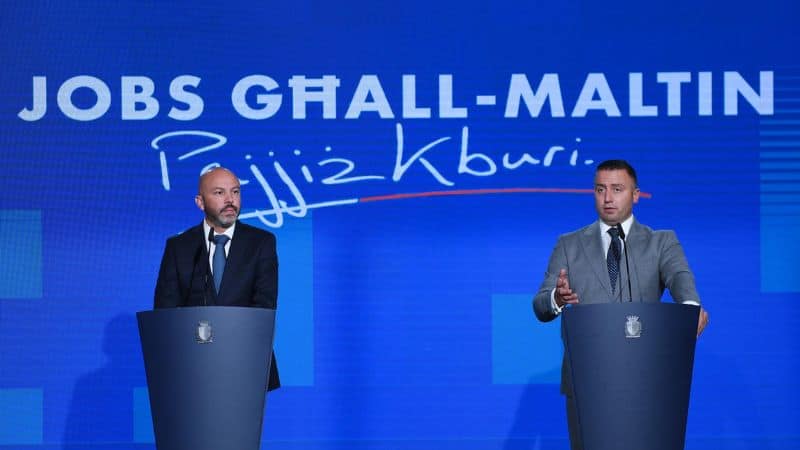
David Walliams is a funny guy. He’s a world class host, an accomplished artist and storyteller, a charismatic entertainer who, I have no doubt, is worth every penny he charges. But quite why Minister Clayton Bartolo thinks that the fact that Walliams hosted an awards show in Malta could convince a filmmaker to shoot in Malta rather than elsewhere I still don’t understand.
I don’t react to the €120,000 fee with the sort of amazement that often comes with the realisation that some people command in one evening the sort of invoicing value that most people would not accumulate in years. If Sliema Wanderers were to hire Cristiano Ronaldo to play for them, they’d have to pay the sort of salary Cristiano Ronaldo is worth anywhere else in the world, not what Sliema Wanderers normally pays its other players.
What everyone understands is that there’s no use for Sliema Wanderers being resentful of the fact that they can’t afford Cristiano Ronaldo. Most clubs in the world don’t either.
Malta simply cannot justify spending €120,000 on a TV show host in one evening. It is disproportionate to whatever return the expenditure might have brought about. I know it goes beyond the quality of his jokes. I can understand the idea that it is good to look world class if you want to be treated as such. But even in sales terms this is a silly expense. How is the identity of an awards show a criterion in the purely artistic and commercial decision of a film production company to choose a film location over another?
The editorial of Times of Malta today is devastating. It calls for Johann Grech’s removal from the post of Film Commissioner, and not for the first time. It brands the spectacular expenditure at the Film Commission as an indulgent ego trip for the Commissioner and his minister.
Of course, the film industry is a good thing to have. Any sustainable job-creating economic activity in which we can compete is worth pursuing. It is also sensible that the government spends money on helping an industry grow. The key is proportionality. There is no credible evidence anywhere that the sort of expenditure being made is creating any proportionate return to the economy.
It is understandable that people wonder if the €120,000 spent on Walliams would have been better spent on teachers’ salaries. They’d run out quickly, but I sympathise with the frustration with a government that is stingy in the wrong places and positively profligate in others.
But going beyond that narrow argument, one would have to ask if the expenditure being made in film would not give better returns if invested in less glamorous and photogenic economic activities. What would the return be if that money was spent on research and innovation in precision engineering say, in high-yield manufacturing, in AI development, in boat design, in games and electronic entertainment? What would the return be if some of that money was spent in locally grown audio-visual productions rather than paying film makers for expenditure that in great part is spent outside the country?
Every penny spent is not merely an expense. There’s also the cost of wasting the potential opportunity of investing in something that would give the Minister less photo-ops but yielding more to the economy.
Would it make more sense for Sliema Wanderers to spend money training properly rising stars rather than spend it all on one player it can ill afford? This comes with apologies to Sliema Wanderers and Cristiano Ronaldo. My range of domestic clubs and international football players is very limited.
There’s something else that needs saying here. It took the Daphne Caruana Galizia Foundation two years of legal battles for us to get the answer to the simple question, how much did you pay David Walliams. Clayton Bartolo’s argument that they were bound by confidentiality not to reveal Walliams’ fee is unacceptable. It is true that commercial contracts often have confidentiality clauses, but contracts only contain what the parties agree to put in.
Governments should not only avoid commercial contracts where they pay a comedian the value of 17 open heart surgeries for a laugh and a photo. They should also avoid commercial contracts where they are required to promise the comedian to keep their fee secret. No one is so funny that they are worth frustrating the public for two years and denying them the simple answer to the question of how much of their money was spent on a stand-up act.
It’s just not right.